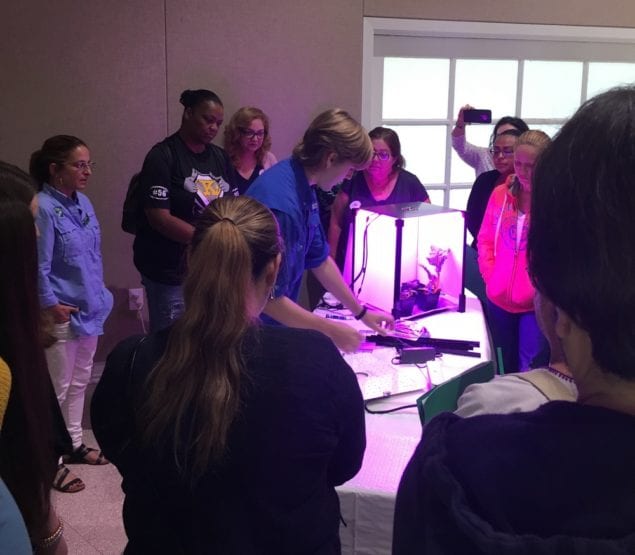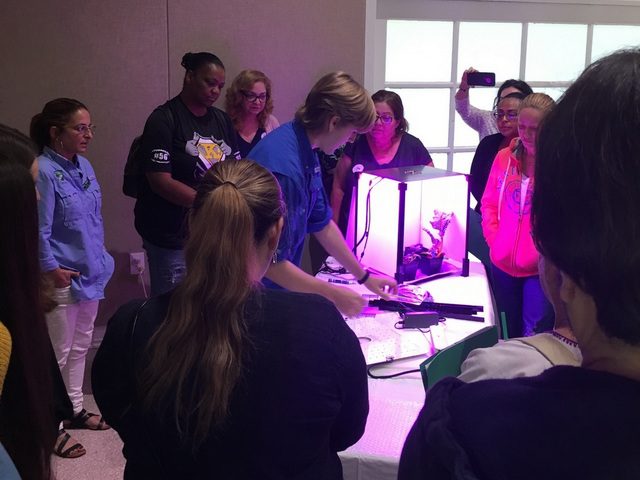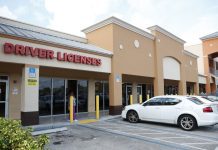
Fairchild Garden’s multidisciplinary educational program now in its 18th year, The Fairchild Challenge, has designed and constructed a Food Growth Chamber, modeled after NASA’s Veggie unit aboard the International Space Station (ISS), to enable Growing Beyond Earth (GBE) middle and high school students to continue researching and collecting growth data to test new varieties of edible plants optimal for growing in space.
“Approximately 135 middle and high schools enrolled in the Fairchild Challenge in Miami-Dade, Monroe, Broward and Palm Beach counties will receive the new Growth Chamber at no cost to assist in their research,” said Amy Padolf, director of education at Fairchild Tropical Botanic Garden.
The 2019-20 Challenge for Growing Beyond Earth (GBE) students includes testing a plant species’ biomass production and health.
The growth chamber measures 13 by 16 inches and includes a fan (essential to ensure air movement) and manually controlled four LED light settings (red, green, blue and white).
The sides are corrugated plastic and promoting collaborative, parts of the frame fixture were 3D printed using Fairchild’s 3D printers and laser cutters.
“Fairchild Challenge high school students now have the technology in hand to efficiently expose the test plants to a specific, measurable light spectrum to manipulate plant growth,” said Marion Litzinger, a Fairchild Education Research Program manager who coordinated the design and construction of the growth chamber. “This kind of affordable LED technology didn’t exist when we began our partnership with NASA four years ago.”
The Growing Beyond Earth (GBE) Challenge is designed to expand food options and increase plant diversity for spaceflight by evaluating multiple edible plants that meet NASA’s criteria for size and edibility. Using equipment that mimics the environmental conditions aboard the International Space Station, students are testing factors that may influence plant growth, flavor, and nutrition.
Grants totaling approximately $1 million from NASA ($750,000) and the Institute of Museum and Library Services ($250,000) support these food technology efforts
For more information, visit www.fairchildgarden.org.






